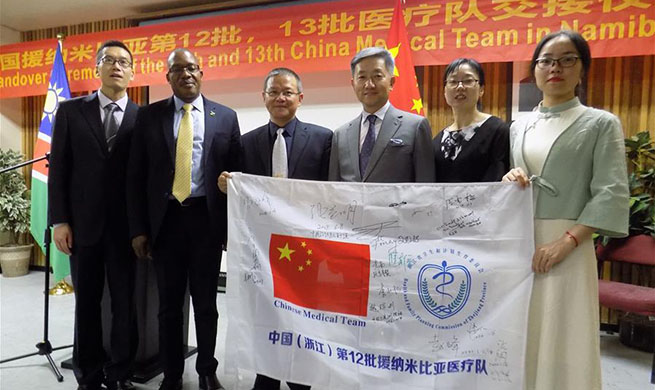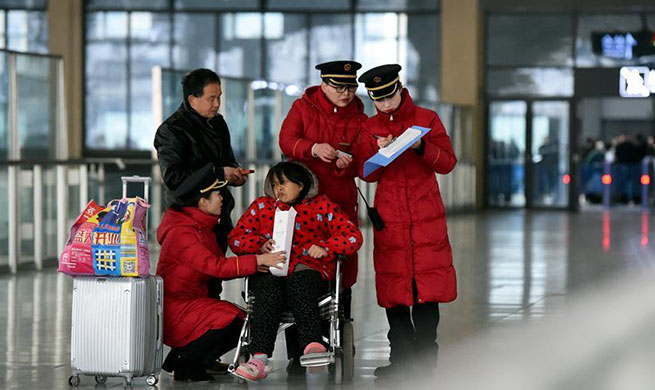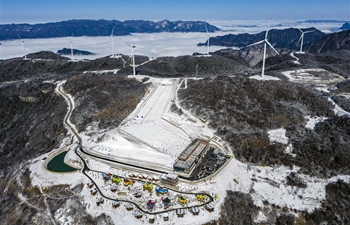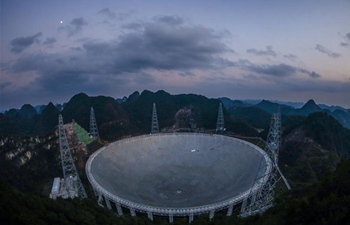SEOUL, Jan. 17 (Xinhua) -- South Korea's central bank on Friday froze its benchmark interest rate at a record low of 1.25 percent to wait and see the effect of two rate cuts last year amid the alleviated external uncertainties stemming from the signing of the phase-one trade deal between China and the United States.
Bank of Korea Governor Lee Ju-yeol and six other monetary policy board members decided to keep on hold the benchmark seven-day repurchase rate.
The central bank cut the policy rate twice last year from 1.75 percent to 1.50 percent in July and to the current level of 1.25 percent in October respectively.
The rate freeze was in line with market expectations. According to the Korea Financial Investment Association survey of 100 fixed-income experts, 99 percent predicted the rate on hold.
External uncertainties facing the South Korean economy weakened after China and the United States formally signed their phase-one economic and trade agreement in Washington on Wednesday.
The Korea Center for International Finance said in a Thursday report that the global trade feud, which it called "the riskiest factor of the world economy since 2018," was relieved with the signing, expecting it to have a positive effect on the recovery of both the global and the South Korean economies.
South Korea's finance ministry forecast in December that the country's real gross domestic product, adjusted for inflation, would rise 2.0 percent in 2019 after expanding 3.1 percent in 2017 and 2.7 percent in 2018 each.
One of the main reasons for the slower economic growth was the global trade spat that drove South Korea's export into falling for the 13th consecutive month through December.
Local brokerage KB Securities forecast that the signing of the China-U.S. trade deal was predicted to raise this year's global economic growth rate by 0.1 percentage point.
Casting a bright outlook on the South Korean economy, the global semiconductor industry was projected to recover as early as in the first quarter after the chip industry's downturn served last year as the key risk factor to the export-driven economy.
The export fell 5.2 percent in December from a year earlier, after skidding in double figures for the previous months. In November, the outbound shipment slumped 14.4 percent from a year ago.
Operating profit of Samsung Electronics, the country's tech behemoth, turned upward in the second half, hinting at a turnaround this year.
The profit stayed below 7 trillion won (about 6 billion U.S. dollars) in the first and second quarters of last year, but it rose above 7 trillion-won market in the third and fourth quarters.
Recent economic data indicated the eased economic slowdown. The cyclical factors for leading economic indicators, which measure outlook for future economic situations, rose to 99.2 in November from 98.8 in October.
Production in the mining and manufacturing industries shrank 0.3 percent in November from a month ago, but it was down from a 2.1 percent reduction in the previous month.
The slower fall was attributed to a rebound in semiconductor production, which jumped 30.9 percent in November after growing 11.7 percent in October.
Retail sales, which reflect private consumption, expanded 3.7 percent in November from a month ago, while output in the services industry gained 2.5 percent in the month.













